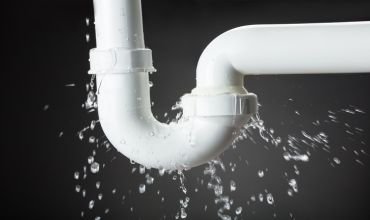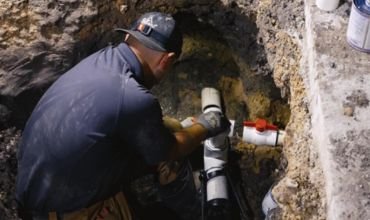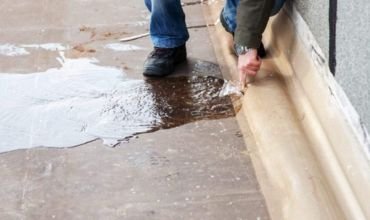Do you know what gives homeowners peace of mind? Knowing that their insurance policy has their back when unexpected issues arise. One of the unexpected problems is a slab leak- a major issue that can cause extreme damage to your foundation. So, does homeowners insurance cover slab leak repair? In case you don’t know, homeowners insurance policies do cover slab leaks, but only in certain circumstances.
To dive deeper into this topic, you can consider making this manual your go-to source. Yes, relying on this guide will help you gain insights into homeowners insurance coverage for slab leaks.
A slab leak is basically a foundational issue in your home that occurs beneath your home’s concrete slab. The reasons behind these leaks are varied, including corrosion, poor installation of pipes, shifting soil, water pressure, and many more. Detecting a slab leak is not at all easy since the pipes are buried under the concrete. However, untreated slab leaks may lead to serious structural damage and collapse of the foundation.
As discussed above, your homeowners’ insurance will cover slab leaks in certain situations. The insurance will generally cover your slab leak repair cost when the damage is sudden and accidental. To save you time, here is a list below mentioning the specific situations where your homeowners’ insurance is likely to cover slab leak repairs:

Pipes that are accidentally damaged due to high pressure or other sudden incidents may cause slab leaks. Homeowners insurance generally covers the repair costs in these scenarios.
When you notice a slab leak due to unexpected plumbing failures, such as a leaking water heater or pipe joint failure, you can reach out to your insurance provider to cover the repair costs.
Covered perils, such as pipe bursts, plumbing system failures, or damage from severe weather conditions, might cause water damage, leading to slab leaks. To deal with these unexpected events, you can easily cover your repair costs under a homeowners’ insurance policy.
If a slab leak compromises the structural integrity of your home, including the foundation, walls, or floors, your homeowners’ insurance may cover the expenses of repairing the damage.
In case the slab leak damages your personal property, such as furniture, electronics, or other belongings, you can cover the repair or replacement costs of damaged items under your homeowners’ insurance policy.
If a slab leak has left your home uninhabitable, your homeowners’ insurance policy might help you with additional living expenses. This coverage will provide you with financial assistance for temporary accommodations, meals, and other necessary costs while your home is being repaired.
After learning about all the specific scenarios where your insurance may cover slab leaks, it is equally important to understand when it might not. First of all, when purchasing any homeowners’ insurance, it is important to review the exclusions and limitations. This helps you have a better understanding of what is and isn’t covered under your policy. Most of the time, homeowners’ insurance policies do not cover slab leaks caused by:

Figuring out if there is a leak under your concrete foundation is not as easy as it seems. You may have to look for several signs to identify a slab leak. Here are some signs and indications to recognize a slab leak:

You can’t ignore the signs of a potential slab leak, as early detection and prompt actions will save your property from extensive damage and costly repairs. Here is what you will do if you suspect a slab leak in your home:
Well, there are no fixed costs for repairing a slab leak, as it can vary depending on several factors. Some of them are:

Now you have a clear understanding of what exactly is a slab leak, whether it is covered under a homeowners’ insurance policy, and the conditions under which you might be eligible for coverage. After knowing this, you can be confident enough to handle any slab leak issues that may arise. You can also connect with the team of ManageMyRoof to assist you with any concerns you may have. Their team of experts will not only provide guidance but also professional services to address your issues effectively.
The homeowners’ insurance policy may or may not cover slab leaks. It totally depends on the cause of the leak and the specifics of your policy.
If the slab leak is due to gradual wear and tear, poor maintenance, or long-term corrosion, then the homeowners’ insurance policy may not cover the slab leak repair cost.
Homeowners’ insurance covers slab leak repair costs if the leak is caused by sudden and accidental damage, such as burst pipe, explosions, fire, etc.
You may notice a slap leak in cases of unexplained water puddles, a sudden rise in your water bill, or the sound of running water when all the taps are off.
No, not at all, fixing a slab leak on your own is actually a challenging task and is usually not recommended. It requires specialized equipment and expertise to fix the repair.
At ManageMyRoof, you can find reliable slab leak repair services near you. They offer trusted and skilled professionals who can help address your slab leak issues.
To repair a slab leak, the cost involved is generally not fixed as here are various other factors that can influence the overall cost. This includes the location of the leak, extent of damage, type of repair method, and many more factors.
Leave a Reply